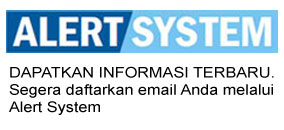Skin-to-skin contact reduces pain response by 30 per cent
 Premature babies who spend the first months of their life in neo-natal intensive care units seem to do better and don’t respond as intensely to pain if their parents are heavily involved in their care at the hospital, Canadian research suggests.
Premature babies who spend the first months of their life in neo-natal intensive care units seem to do better and don’t respond as intensely to pain if their parents are heavily involved in their care at the hospital, Canadian research suggests.
A pilot study involving 31 premature infants whose parents committed to spending at least eight hours at the hospital each day reported improvements compared to infants not enrolled in the program. The study at Mt. Sinai Hospital in Toronto found:
- The babies involved in the study gained significantly more weight.
- They were far more likely to be breast-fed at the time of being discharged from the hospital (82.1 per cent versus 45.5 per cent).
- Their parents reported a significant decrease in stress by the time their babies were discharged, whereas parents not in the program reported no change in stress.
Dr. Karel O’Brien, a neonatalogist at Mt. Sinai, said there is also some evidence that infants whose parents spend lots of time with them in the NICU have fewer infections.
Meanwhile, 19 clinical trials examining the effect of skin-to-skin contact between infants and their parents are finding that it helps the babies cope with painful procedures and recover more quickly.
Studies underway at 16 sites
O’Brien was the lead author of an article reporting the preliminary results of the Mt. Sinai study in the journal BMC Pregnancy and Childbirth earlier this year. Further research on the approach is currently underway at Mt. Sinai and 16 other sites across Canada, including the IWK Hospital in Halifax.
That’s where tiny baby Teddy was born almost two months before his due date. His mother, Beverley Ivy Newell, said he’s already had IVs put in and blood samples drawn multiple times.
She added that she’s happy to be at a hospital where parents are encouraged to be part of their infant’s care so she can hold and comfort Teddy during painful procedures.
“Having him close with me helps for both of us,” she said, her voice wavering with emotion.
Marsha Campbell-Yeo, a neonatal nurse practitioner and researcher at the IWK hospital, said a mother’s closeness and comfort can diminish a baby’s pain response by 30 per cent.
Newell said she sees that: “He doesn’t struggle as much and by reading the monitor, you can see [from] his heart rate, he calms down much faster.”
O’Brien said she hopes the studies will confirm the long-term health benefits of this approach for babies and result in more support for parents who participate.
“If we really think that parents need to be in the NICU when their babies are in the NICU,” she said, “then it may make sense to try and get extended maternity leave for those mothers.”
Source: cbc.ca








